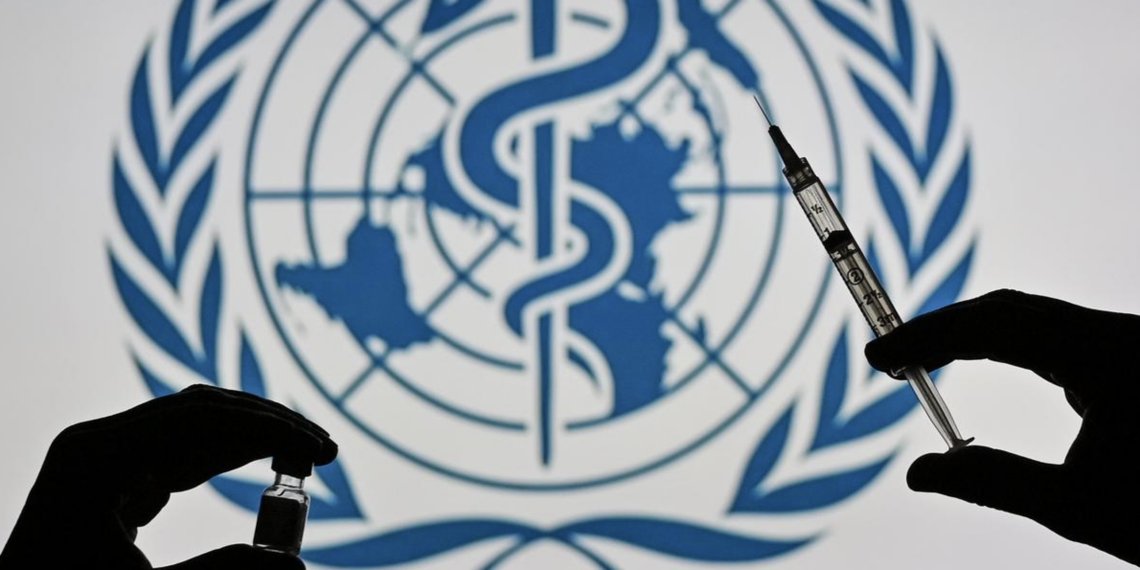by Ben Kingsley and Molly Kingsley, Daily Sceptic:

In the past fortnight, revised drafts of the World Health Organisation’s Pandemic Accords (a draft new Pandemic Agreement, and a package of amendments to the existing International Health Regulations) have been made available. Although the new texts, especially as regards the IHRs, mark a significant improvement on the egregious overreach of the previous circulated drafts, significant concerns remain.
This briefing paper explains the key changes and persisting issues. In summary:
TRUTH LIVES on at https://sgtreport.tv/
Many of the most egregious proposals in the original IHR amendments package have been dropped or significantly scaled back, including:
- Proposals which would have ordained the WHO with powers to issue binding directives to Member States (dropped)
- Proposals which would have erased reference to “dignity, human rights and fundamental freedoms” (dropped)
- Proposals which would have allowed the WHO to intervene on the basis of having identified a mere “potential” health emergency (dropped)
- Provisions which had proposed to expand the scope of the IHR’s to include “all risks with a potential to impact public health” (dropped)
- Provisions expressly favouring the use of digital health passports (dropped)
- Proposals which aimed to construct a global censorship and ‘information control’ operation led by the WHO (dropped, though the texts still commit States to enhance their abilities to counter ‘misinformation and disinformation’)
- Plans for the WHO to police compliance with all aspects of the IHRs (scaled back).
Significant issues remain across both texts, including:
- Affirmation of the WHO as “the directing and coordinating authority on international health work, including on pandemic prevention, preparedness and response”. Whilst attempts to supercharge the WHO’s authority and power have been scaled back from the original proposals, the Pandemic Agreement and the IHRs are still intended by the WHO and its Member States to form a strengthened mandatory global framework agreement for pandemic management as part of a longer-term transfer of public health decision-making away from community and national levels.
- Covid interventions as a blueprint for future pandemic action. The proposals start from the premise that the array of Covid interventions actioned during the pandemic are a suitable blueprint to direct future pandemic response behaviour. This is an extremely controversial starting point, which for the U.K. hugely prejudges the findings of the Covid Inquiry.
- Proposals which envisage a strengthening of national pathogen surveillance hardwire in a surveillance-first strategy which seems guaranteed to increase the perception of regular pandemic threats and the likelihood of triggering drastic responses to routine outbreaks.
- Proposals which grant the WHO Director General power to declare a pandemic emergency continue to vest unacceptably significant discretionary power in just one individual.
- In promoting the use of behavioural science and ‘risk communication’ the texts ordain the use of nudge, propaganda and censorship. A more appropriate strategy would be to embed legal and practical protections for scientific debate and free speech.
- Taken together the two Accords would commit the U.K. to supporting the WHO’s global response strategies come what may, and would seek to commit us to significant new funding obligations as part of that. There is no good reason to bind ourselves to the WHO, with its poor pandemic management track record, at least until major reform of that organisation, including its funding model, has been secured.
- The texts assume the need and desirability for an interventionist response to future pandemics, using the Covid response as a starting point. That flawed assumption further relies on an assumption that there are properly functioning and effective national regulatory regimes in place. The reality across all major jurisdictions is systemic regulatory capture by private industry which, in the U.K., parliamentarians and experts have already called out as a clear threat to patient safety.
As of the time of writing, there are only three weeks left until the vote on these proposals is due to be put to the World Health Assembly. Reports suggest that negotiations across many key provisions are still ongoing, and as a result further changes can be expected to these generationally important texts. Any sensible period for scrutiny is over, and the democratic illegitimacy of forcing through a vote on these controversial agreements within the originally planned timeframe will further decimate trust in public health, and the World Health Organisation.
Legitimate questions have also been raised about the legality of any adoption vote for the IHR amendments taking place in May 2024, given the impossibility of complying with necessary legal notice periods under Article 55 of the IHR.
More broadly, it is inappropriate for the U.K. now to deepen its integration into a multilateral organisation about which serious governance, ethical, conflict and competency concerns persist: in relation to its senior personnel, its duplicity and mishandling of these negotiations and its private funding arrangements and motivations. Each of these points is discussed more fully below.
Context
This briefing paper explains the twinned proposals, coordinated by the World Health Organisation and negotiated by its constituent Member States, for a package of amendments to the existing International Health Regulations (IHRs), and for a new Treaty on pandemic prevention, preparedness and response styled as the ‘WHO Pandemic Agreement’. The two documents are intended to operate, and need therefore to be read, alongside each other.



